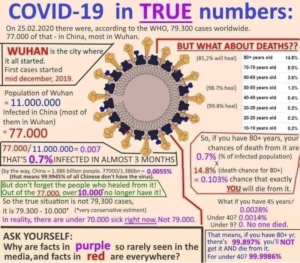12 Mar March 2020 Newsletter

Hello,
I hope you are all well.
I must firstly apologise for not getting a newsletter out to you sooner, it has been a crazy month here at The Blinks HQ as I have become the national expert on how to manage the psychological impact of the spread of the corona virus. It has been media crazy, but all in a wonderful way and I have tried my best to reduce the heightened emotions that are being activated by so much media coverage.
It began with an appearance on BBC Breakfast on 29th February (just after I had proposed to my husband, even after 19 years of marriage, I didn’t want him feeling left out!!!). since then I have also appeared on London BBC news, and on BBC Radio’s 5 Live, Leeds, Shropshire, Lancashire, Lincolnshire, Jersey, Surrey & Sussex, Merseyside, Berkshire, Cumbria, Coventry and Warwickshire, Sheffield and Solent! Just in case you missed it, I thought it would be good to share with you the best ways to manage this emotion-charged issue and more so how to address the issue with your children.

So, the emotional difculty we are currently facing is that we can’t escape the impending doom of what the corona virus is being made out to be; it is everywhere. This constant bombardment is naturally going to activate a sense of danger within us. Once this danger is registered in our thought process, our emotions will naturally become activated. This is because our emotions are purely designed to communicate to us that there is a problem to solve, so that we adapt to fundamentally stay alive. Sadly, we can’t solve the corona virus as quickly as that, so instead we need to use our emotions to motivate us to take the healthy and safe precautions that reduce our risk of catching the illness, but make sure we are not letting them get too carried away at the same time. Our emotions really do love themselves and if they think they can maximise a situation, they will!
So, we must make a real effort to keep this all-in perspective. If our emotions get carried away, and we feel an unhealthy degree of anxiety and fear, that doesn’t perhaps put the real facts of this situation in a more rational reality, it could begin to change our behaviours more extremely and impact on our mental health and well-being. So, what can we do:
Top tips for managing the psychological impact of the corona virus
- Remember behaviour change takes time, don’t be too hard on yourself if you forget to wash your hands of are touching your face more than you wanted to.
- Reengage the behaviours that you want and use positive self-talk to help you keep going – you’ve got this
- Catch yourself noticing the behaviours you currently do or want to do and use this insight to drive the correct behaviours, being careful to not reinforce the negative behaviours that could become a problem
- Set up new behaviours. Think – “what can I do instead?” Rather than touching your face as much, you could give yourself a reassuring stroke from the shoulder to the elbow, this is a good way to reduce feelings of anxiety, offer some self-soothing reassurance to yourself and is a positive distraction
- When talking to children, and out what they already know and then give them a little bit more information than they already have. If we give too much information, we will overwhelm them and increase levels of negative emotions
- Be reassuring and give the facts to children and to ourselves. Reminding of the rational, more logical information we know about this condition will help reduce the domination of our emotional brain
- Remember, children are very sensitive to the emotions we portray. Try to talk about this calmly so as not to transfer your anxieties and fears on to them
- Let’s use this situation to our advantage. Teaching children the importance of thorough handwashing will not only help to safeguard them from the corona virus now, but also from the other germs and bugs that they are in contact with in the playground.
I do hope you have found this helpful. Keep it all in perspective and do the simple things that reduce our risk. This is actually a wimp of a virus compared to many as it has a lipid shell, so is very quickly destroyed with soap and water. We can and will beat this.
Stay happy.
Take Care
Andrea
Andrea Chatten
Founder – Unravel
Children’s Emotional & Behavioural Psychologist
unravelsupport.co.uk
 If you would like even more regular information on these kind of issues, please follow us on Facebook and Twitter @unravelsupport
If you would like even more regular information on these kind of issues, please follow us on Facebook and Twitter @unravelsupport


